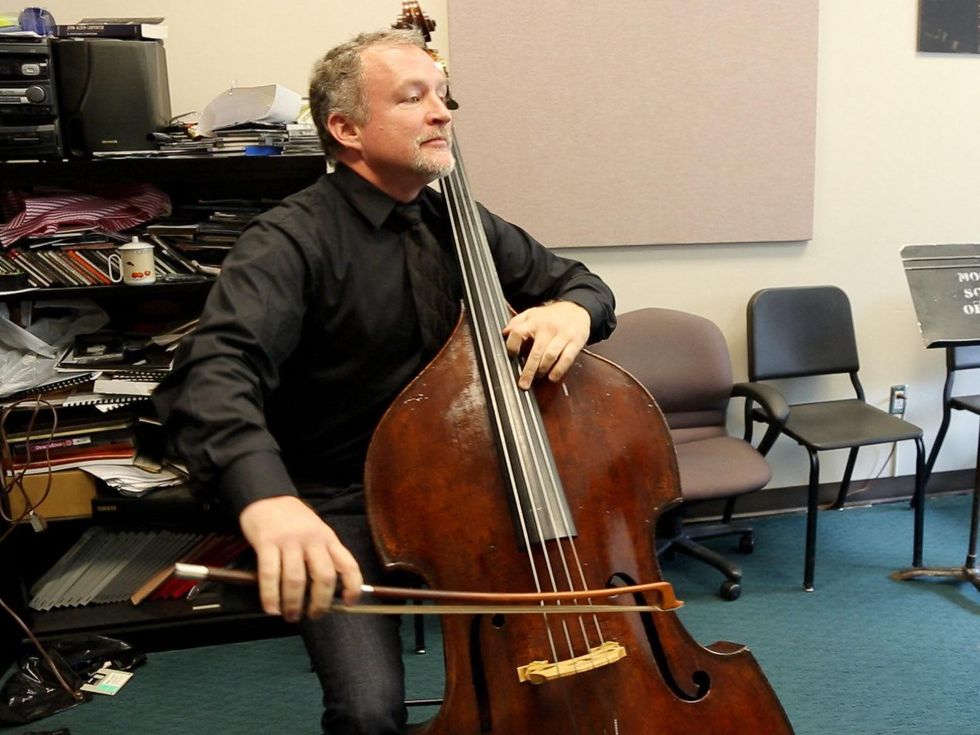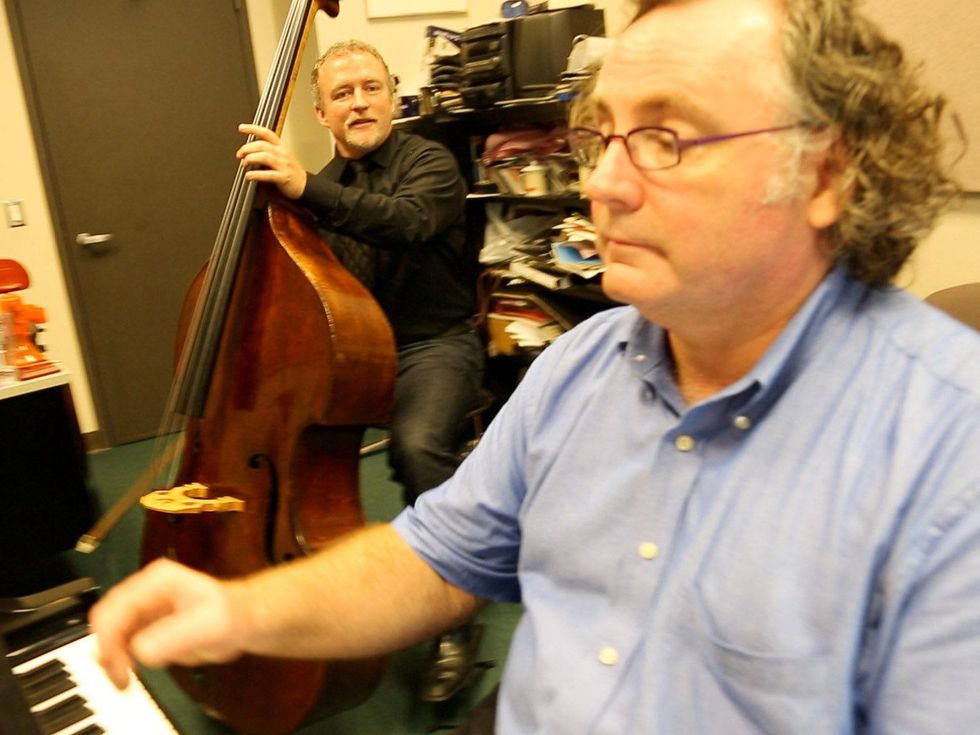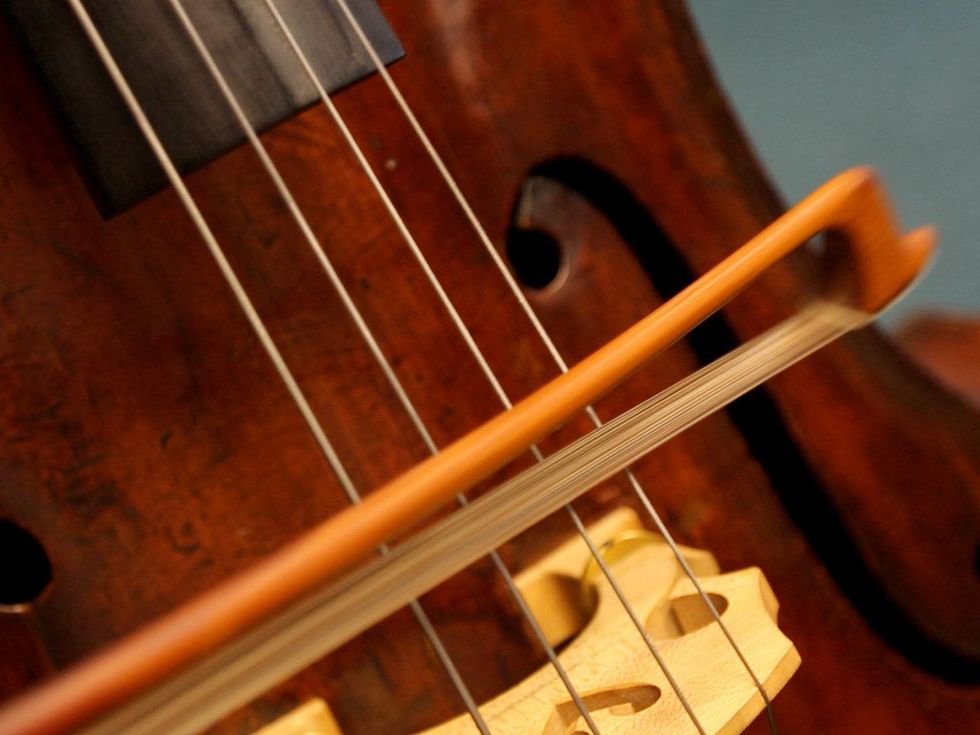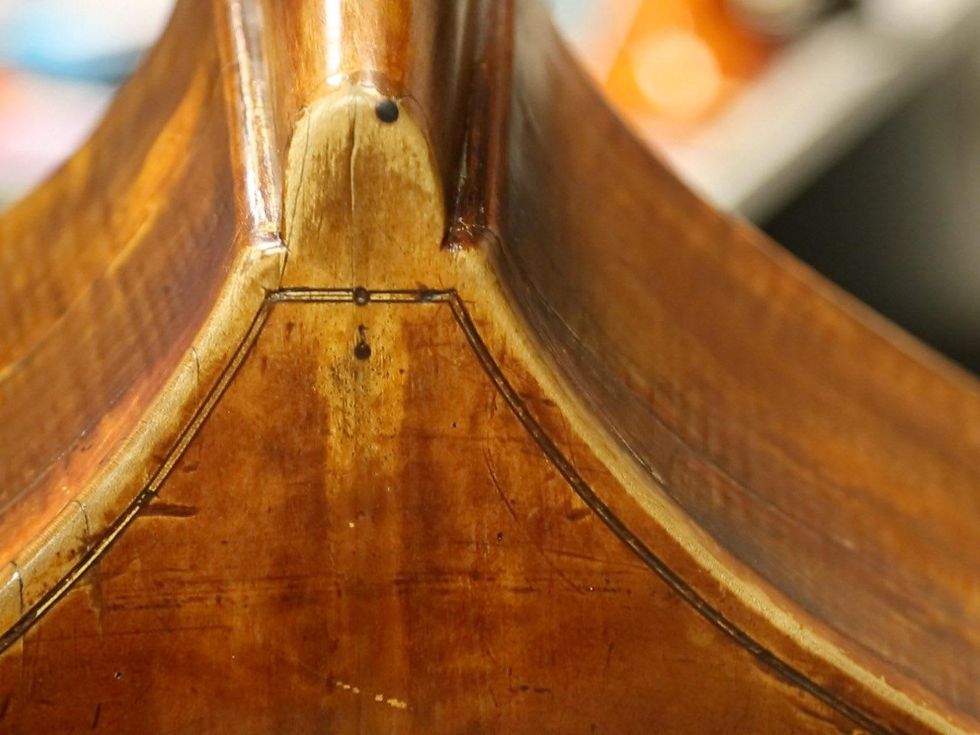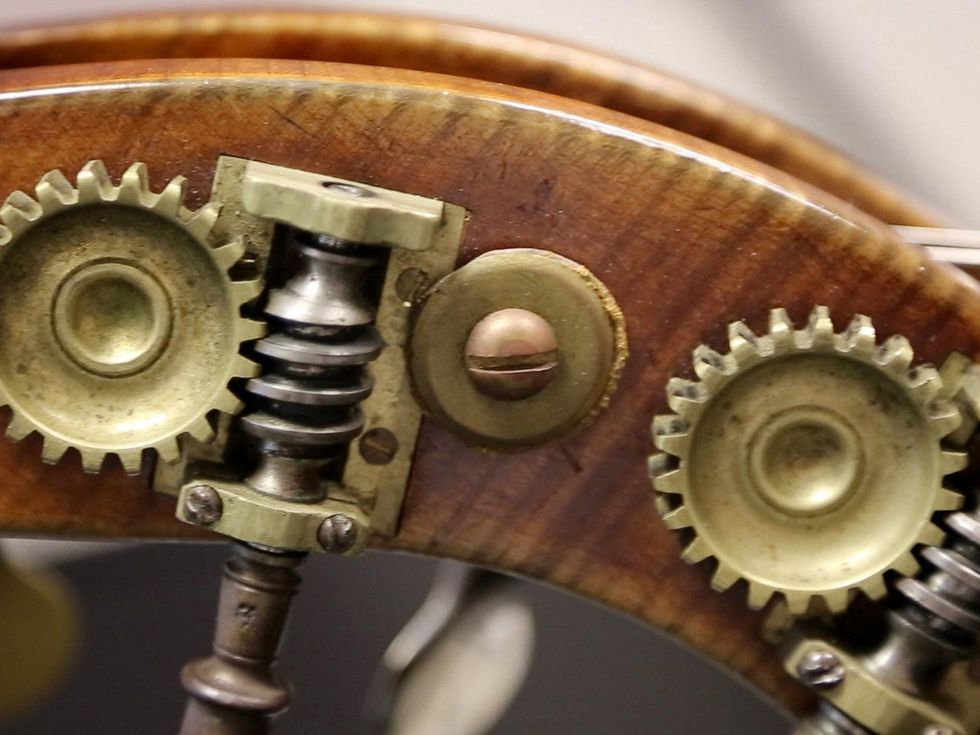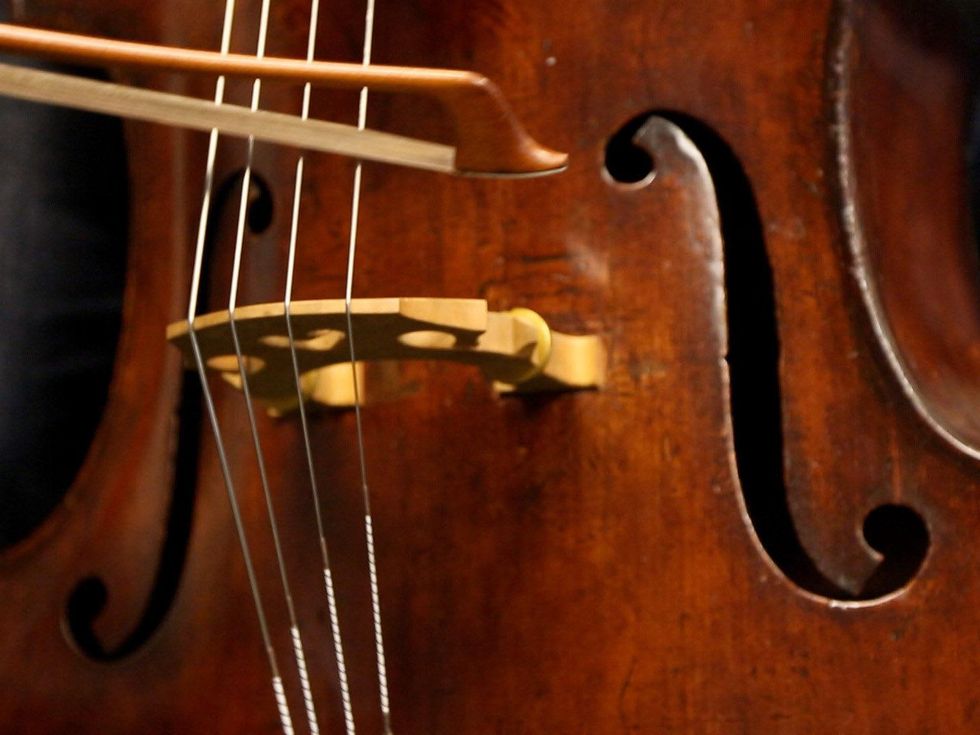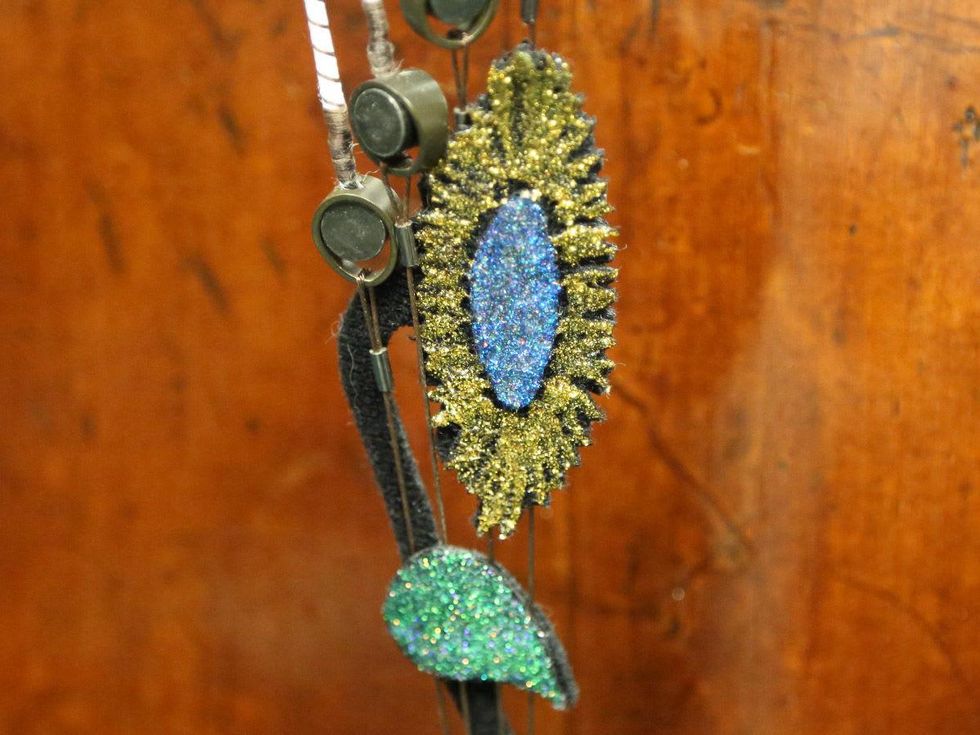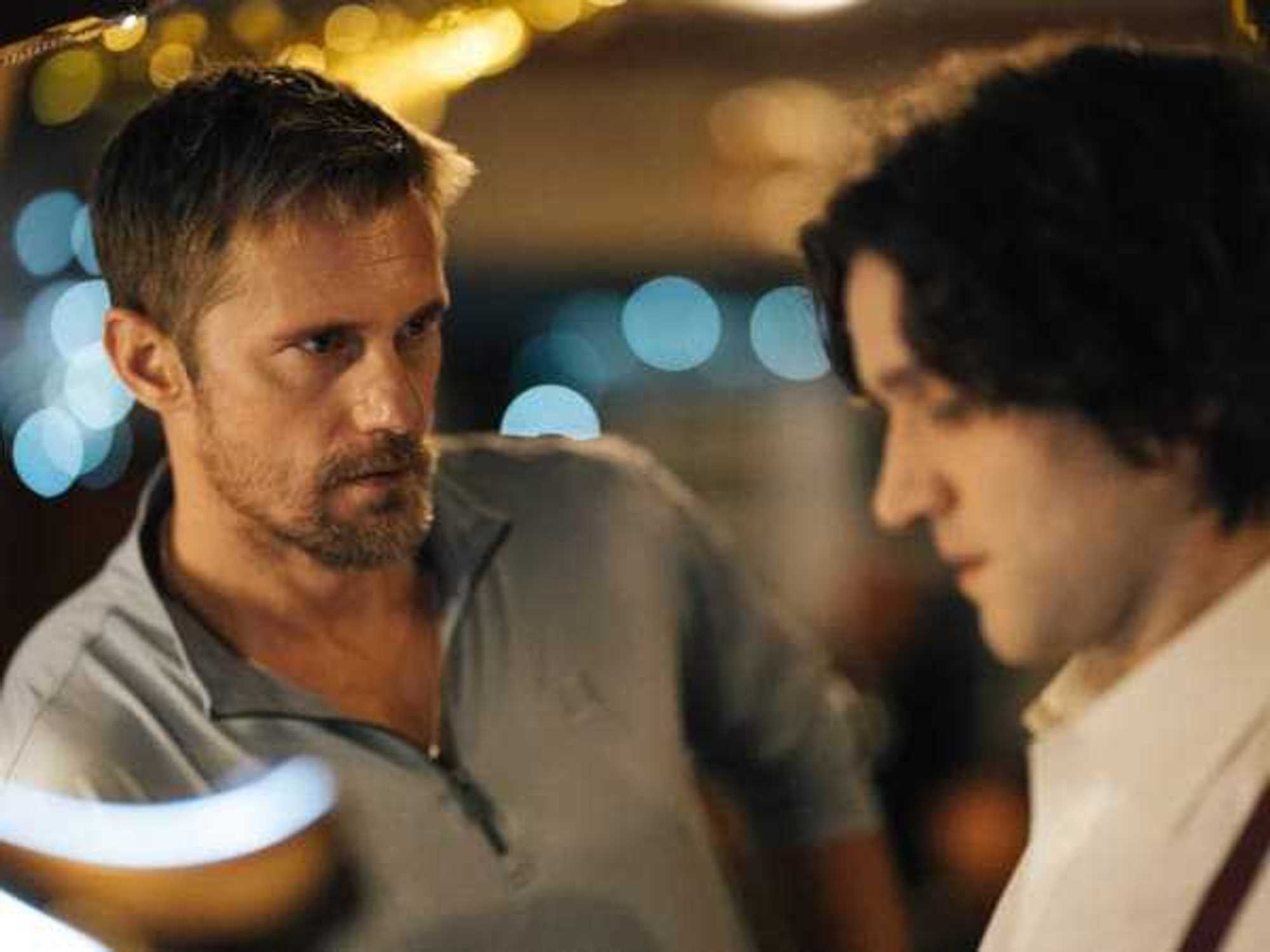CultureMap Video
Serge The Musical Ghost: Great haunted instrument makes a spooky Houston debut
Some say that no amount of research has been able to decipher the mysteries of centuries-old string instruments. Their aged sound board delivering an opulent, warm timber rich in overtones is a result of a complex relationship between natural elements and science. Lab tests conducted on fiddles, however, have concluded that the molecular structure of wood alters with the vibrations of sound, particularly in humid conditions.
Others are convinced that, as some blind listening exercises have surmised, the ear cannot distinguish between a high quality modern instrument and a pedigreed antique.
Still, there's magic in the storied instruments from the ateliers of Italian masters like Stradivari, Guarneri and Amati, some musing fictionalized, bewitching tales that are so poetic one fancies them as truth. The saga of one particular instrument, though, posits a different explanation for its musical prowess.
This double bass is on loan to University of Houston affiliate artist Dennis Whittaker, whose recital with pianist Tim Hester, titled "The Enduring Legacies of Serge Koussevitzky and Gary Karr," scheduled for 2:30 p.m. Sunday at Dudley Recital Hall, summons the legacy of two influentials who redefined an instrument that's often felt, not heard.
"The sound of this bass is very pointed," Whittaker says. "It has a lot of upper mid range, and it can be heard above the basses and around the range of the cellos, but it has a darkness, a more chocolatey sound than the cellos have in an orchestra. It can cut through an orchestral texture with ease."
"During the concert Mme. Koussevitzky saw the ghost of her husband embrace me, which she interpreted as a sign that I should be the recipient of his double bass."
Ghosts Lurking?
Olga Koussevitzky, the third wife of a famed bass soloists turned conductor and music entrepreneur, believed in ghosts. Her husband, Serge Koussevitzky, was an illustrious virtuoso of formidable talent and strong — yet complicated — convictions. He served as the principal bass of the Bolshoi Opera Theatre in Moscow, founded a music publishing company that promoted composers of Russian provenance and, from 1924 to 1949, was the music director of the Boston Symphony Orchestra. He's also credited with establishing the Tanglewood Music Center, today one of the premiere summer training programs for promising young musicians.
After he passed in 1951, Olga Koussevitzky guarded what was rumored to be a 1611 double bass built by Antonio and Girolamo Amati, but studies conducted by professional luthiers that examined the wood, grain and size concluded that it was most likely crafted in early 1800s France.
Engendered by a vision from beyond the grave, Olga Koussevitzky found a suitable home for the instrument in Gary Karr, then an emerging, charismatic bass soloist recognized as one of the most remarkable performers of his generation by critics.
Of receiving such a significant gift, Karr writes:
In 1962 my mentor, the great singer, Jennie Tourel, invited Olga Koussevitzky, the widow of Serge Koussevitzky, to attend my New York debut recital which took place in Town Hall. During the concert Mme. Koussevitzky saw the ghost of her husband embrace me, which she interpreted as a sign that I should be the recipient of his double bass. She presented it to me only days after the recital, and again in public when she made the gift official.
Karr retired in 2001 after a successful career that included solo engagements with the Chicago Symphony Orchestra, London Symphony Orchestra and Montreal Symphony Orchestra, and compositions written for him by Gunther Schuller, Hans Werner Henze and Alex Wilder. A few years later, Karr donated the invaluable bull fiddle to the International Society of Double Bassists, which lends the instruments to deserving musicians.
"I'd like to think that it's the spirit of Koussevitzky making sure that we are playing music right."
When the bass isn't being played, it travels to different string shops around the country as a living piece of music history.
A legacy concert
"Because Serge Koussevitzky and Gary Karr have played it, the instrument has taken on a very particular voice and a particular freedom," Whittaker says. "I feel like I'm inhabiting the voice of Serge and Gary. Not as if I were being an impersonator, like I am adding my own voice to the instrument."
Whittaker and Hester curated a concert that represents the music of Koussevitzky alongside pieces made famous by Karr's magnetic interpretation. On the program are four Kreisler pieces arranged by Koussevitzky, Andante, Valse Miniature, Chanson Triste and Humoresque; Paganini's Mose-Fantasia, one of Karr's favorites; and lighter selections that would typically end one of Karr's performances.
With all those references, one wonders if Koussevitzky has already paid a visit to Whittaker.
"I haven't seen a ghost, yet," he says. "But it's impossible not to feel the heritage of the instrument. Some say they feel a presence. I'd like to think that it's the spirit of Koussevitzky making sure that we are playing music right."
Will Koussevitzky make an appearance at the recital? Are you brave enough to find out?
___
The Moores School of Music at the University of Houston presents Dennis Whittaker and Tim Hester in "The Enduring Legacies of Serge Koussevitzky and Gary Karr" on Sunday, 2:30 p.m., at Dudley Recital Hall. Tickets are $12, $7 for students and seniors, and be purchased at the door or by calling 713-743-3313.

